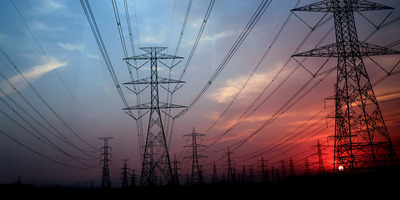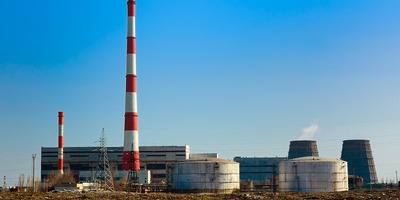All you need to know about energy service companies
All you need to know about energy service companies
Energy Service Companies are becoming more popular, but many people are still unaware of what they offer. Make no assumptions: read everything there is to know
Energy plays an important role in our daily lives and significantly contributes to the high quality of life that all Canadians enjoy. We use energy to feed and make things easy. It keeps us warm in the winter and cool in the summer, as well as brightening our homes and offices. Energy is also a major economic factor in Canada.
About Canada Energy Consumption
Canada is a huge consumer of energy. Factors such as long travel distances for the movement of people and goods, prolonged heating and lighting in winter as well as an economy partly based on high energy-consuming industries (mining, forestry, petrochemical, pulp and paper, aluminum, refining and steel manufacturing) contribute to Canada’s energy consumption. However, Canada has continued to take advantage of its vast natural resources to satisfy the huge energy requirement. Nearly all the energy consumed in Canada between 1990 and 2003 came from fossil fuels of non-renewable resources, namely refined petroleum products, natural gas and coal. Canada is the fourth-largest natural gas producer, fourth-largest crude oil producer, third-largest hydro producer, and tenth-largest renewable electricity generator due to its plentiful natural resources.
Choosing an Energy Company
Choosing an Energy Service Company is an important decision that demands research into your options. Energy users in a deregulated location have an option to choose between energy companies that offer different products and services. While promises of energy savings are alluring, don’t fall victim without carrying out the necessary research. Our most important advice is to: Make sure you’re choosing a company you can trust, one that can guarantee you won’t be overcharged. Read the terms of your contract. Read through their website. Check out their reviews, especially from long-term customers, to make sure that you’ll see savings in the long-run.
Information from the website of energy supply companies might not be reliable. To make the best and well-informed decision you can read Reviews about Energy companies to find out how other consumers made their choice of energy supplier, you can read the experiences, comments and complaints by other users about Electricity companies, Gas companies and Green energy companies. These reviews will help you choose an affordable energy supply. For example, they can help you find:
The best electricity companies in Canada
You can find more information about the best electricity companies and how to identify them. read reviews about electricity companies. By using reviews, you’ll be able to see which company offers the best quality for the best price.
A reliable gas company
Gas supply companies are expected to make energy usage simpler by providing quality customer service and adequate supply. Before choosing, make sure to look up Gas companies' reviews online to see what others are saying about it.
Green energy companies that sell green energy stocks
The hype surrounding green energy stocks hasn't always been justified. Investing in the underlying companies has been a roller coaster ride despite years of continued acceptance of solar, wind, hydroelectric, and other power-generation sources. Find out more about green energy stocks.
Deregulation of Energy in Canada
Many people in North America benefit from having more energy options because they live in a deregulated energy market. Alberta residents are particularly lucky because they have a choice of energy sources, including natural gas and electricity.
In 1985, Canada started deregulating the natural gas industry. The electricity sector followed suit 13 years later, in 1998. Without a controlled rate, energy providers had to find more creative ways to generate interest in their products over those of their competitors. This resulted in more affordable prices and a wider variety of energy plans for customers, giving customers more choices to choose from. For the energy market, this meant developing a range of rate plans from which customers could select based on their own needs, desires, and lifestyle.
Difference Between Energy Service Companies and Utility Providers
What is an Energy Service Company?
Energy service companies are companies that are responsible for developing, designing and funding projects that reduce energy costs and decrease operations and maintenance costs at their customers’ facilities.
What is a Utility Provider?
A utility provider's goal is to provide businesses and individuals with efficient services. Electric utility providers, natural gas utility providers, water and sewer utility providers, and so on are all examples of utility providers.
The lines, wires, poles, and transformers that deliver electricity, water, and gas to homes and buildings are usually owned and maintained by utility companies. A large geographical area is usually served by one or two utility providers. If a region experiences a power outage, a gas leak, or other emergency, residents will seek information from their utility provider.
What does an Energy Service Company Provide that a Utility Provider does not?
The main difference between an energy service company and a utility provider is that an energy service company aims to assist people in upgrading their energy systems to save money and energy, whereas a utility provider provides basic utility services to homes and buildings.
The following are some of the benefits that an energy service company offers that a utility provider does not:
- Energy bill reductions
- Improvements to infrastructure
In a nutshell, an energy service company takes a holistic approach to your home, using an innovative combination of energy products to produce the desired results and help you save money and increase the value of your house.
The Energy Sector: An Overview
The energy industry is a broad and all-encompassing concept that refers to a complex and interconnected network of businesses engaged in the production and distribution of energy, both directly and indirectly, to power the economy and promote production and transportation. Companies engaged in the discovery and production of oil and gas reserves, oil and gas drilling, and manufacturing make up the energy sector or industry. Integrated power utility firms, such as renewable energy and coal, are also part of the energy sector. Companies in the energy sector work with a variety of energy sources. Energy companies are usually classified into one of two groups depending on how the energy they generate is sourced.
What are Non-renewable energy companies?
Companies that collect and distribute non-renewable resources, usually by mining or drilling, are known as non-renewable energy companies. They include
- Petroleum products and oil
- Natural gas
- Gasoline
- Diesel fuel
- Heating oil
- Nuclear
What are renewable energy companies?
Renewable energy, which was once considered a niche field of the energy industry, is increasingly expanding to become a major source of energy in many regions and countries around the world. Examples of green energy generated by companies in this field.
- Hydropower
- Biofuels such as ethanol
- Wind power
- Solar power
Companies in the Energy Sector
The following are some of the kinds of companies that can be found in the energy sector. Each one plays a unique role in supplying energy to businesses and consumers.
Gas and Oil Production and Drilling
These are the companies that mine for oil and natural gas, pump it, and produce it. The extraction of oil from the ground is the most common method of production.
Refining and pipelines
Oil and natural gas must be transported from the point of production to a refinery, where they will be refined into a final product like gasoline. Mid-stream providers are the companies that work in this area of the energy industry.
Mining Companies
Since coal is used to power plants, coal companies could be listed as energy companies.
Green energy companies
Over the years, renewable energy has gained momentum and investment and it is expected to become a bigger part of the energy market in the future.
Energy Sector Investments
Investors' choices in the energy sector will likely be affected by their personal preferences and opinions on the sector's growth and earnings prospects. The energy sector is much larger and more complex than the oil and gas industry. Many investors believe that renewable and alternative energy sources will play an increasingly important role in the future, especially as demand for electric vehicles grows.
In the energy sector, investors have a variety of options for investment, including energy company equities, mutual funds, ETFs, and the right to purchase commodities.
ETFs (exchange-traded funds)
are a set of investments, such as stocks, that follow the performance of an underlying index. Mutual funds, on the other hand, are a selection and management of stocks or investments by a portfolio manager.
For any number of funds, investors can select which part of the value chain they want to be exposed to.
How does energy distribution work?
The energy industry is divided into three categories: generation, distribution, and retail. This is analogous to a lot of other sectors. Consider grocery stores, which have farmers producing the food, logistics firms packaging and transporting it, and supermarkets aggregating and selling the commodity to customers.
Generation
This is where energy is tapped from its source
Networks
The energy is transported from the generators to your home through the networks. This happens in many stages.
Retail
The retail stage of the process is when energy is sold to customers. Retailers oversee the customer relationship, including billing, pricing, and customer support. Private corporations are normally in charge of this.
Conclusion
There is so much more you need to know about the energy industry and energy service companies. The most important of them is finding a great review website that can help you make the best choice of energy supplier.
By
Mo
More Energy

Steps Every Small Business Should Take To Save Money on Energy Bills
Saving money on your energy bills is important for any business, no matter how big or small. This blog post will discuss some tips that every small business can take to help reduce their expenses. Implementing even a few of these suggestions can result in significant savings over time.

Things to know before choosing green energy stocks
There are several reasons to be enthusiastic about advancements by green energy companies: See what green energy stocks are and how to choose

Understanding and Finding best electric companies
This article contains the information you need before choosing an electric company, read the article about the best electric companies to know more

All you need to know about Oil and Gas Companies
Gas Companies are still very much relevant in our world today. In this article, you find all you need to know about these companies and how to choose